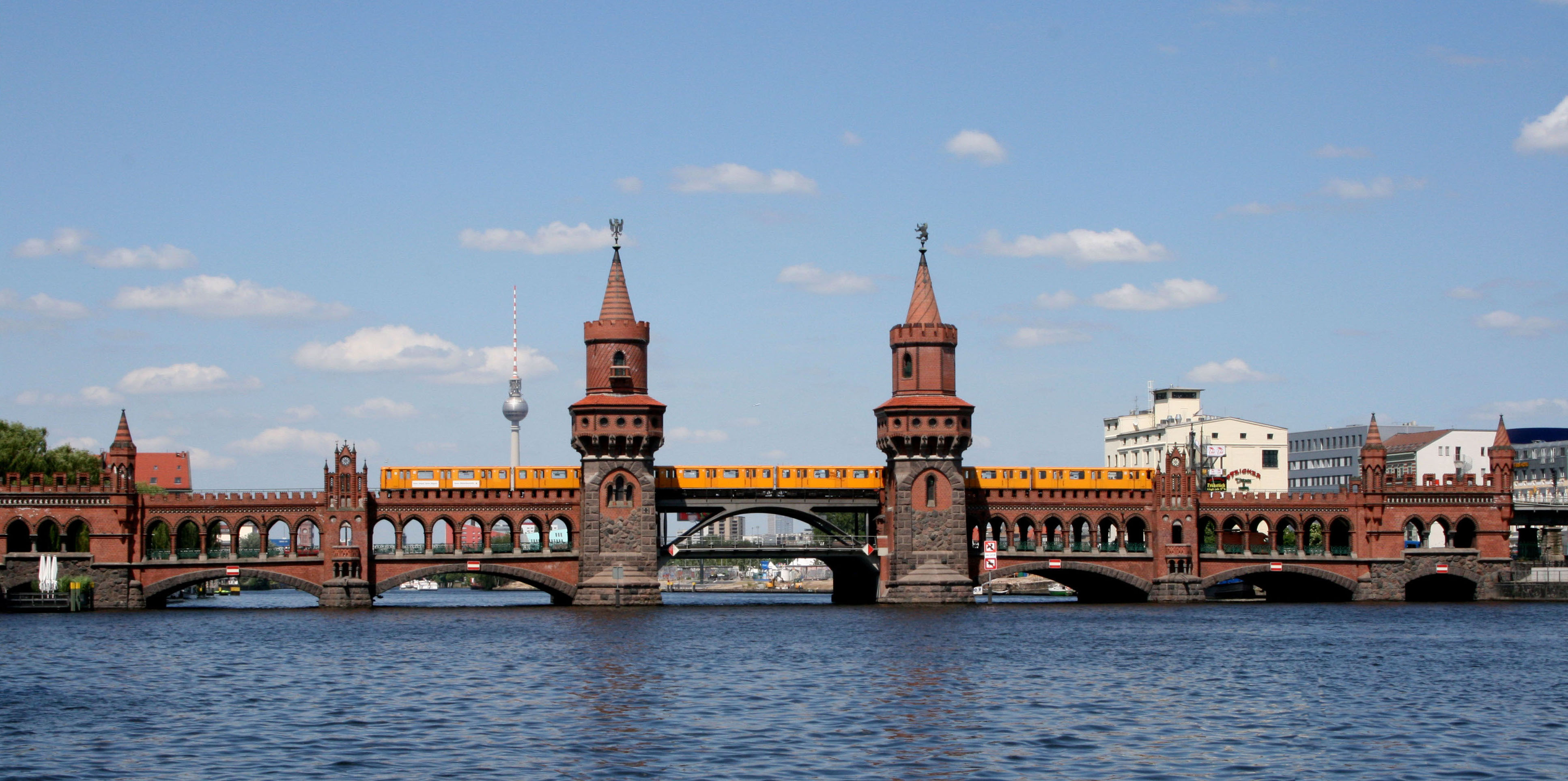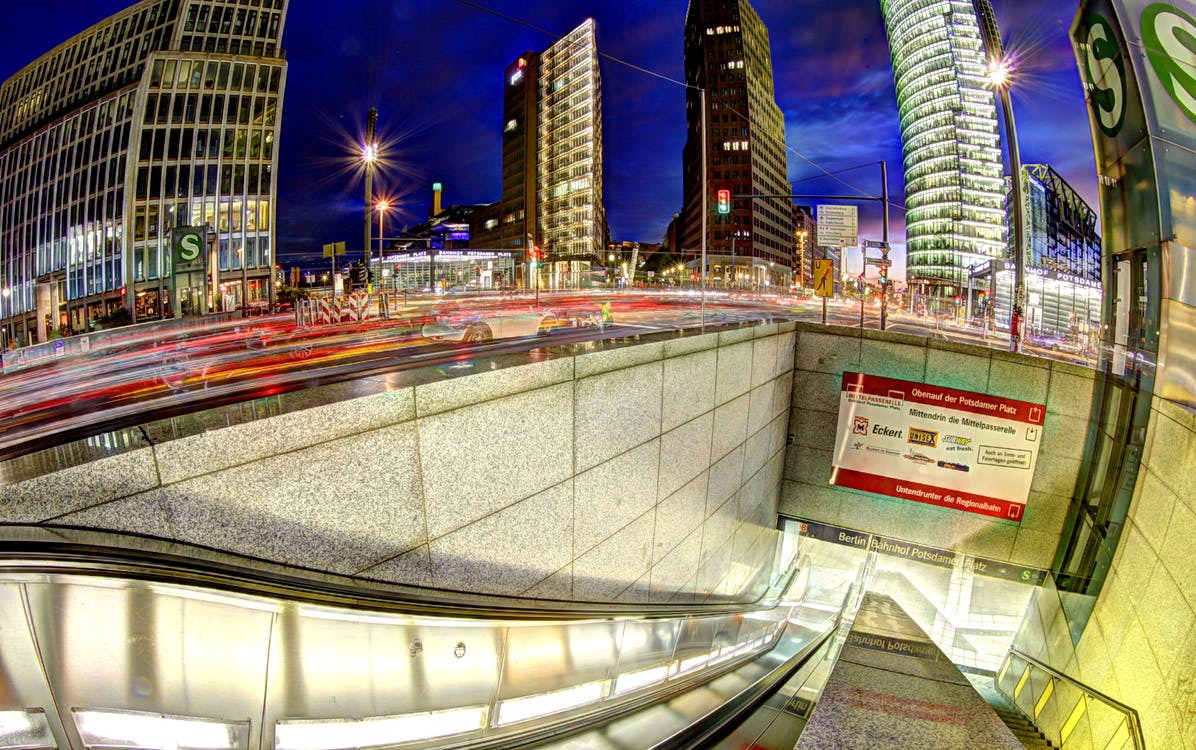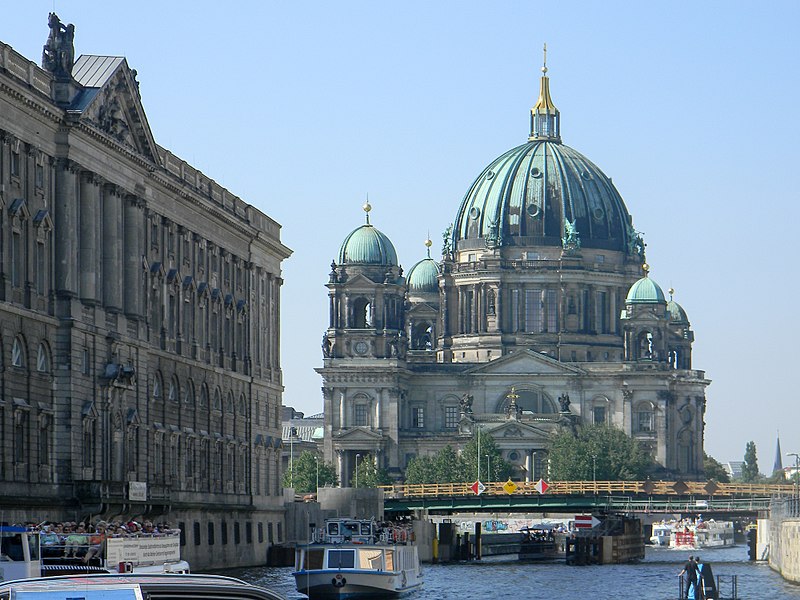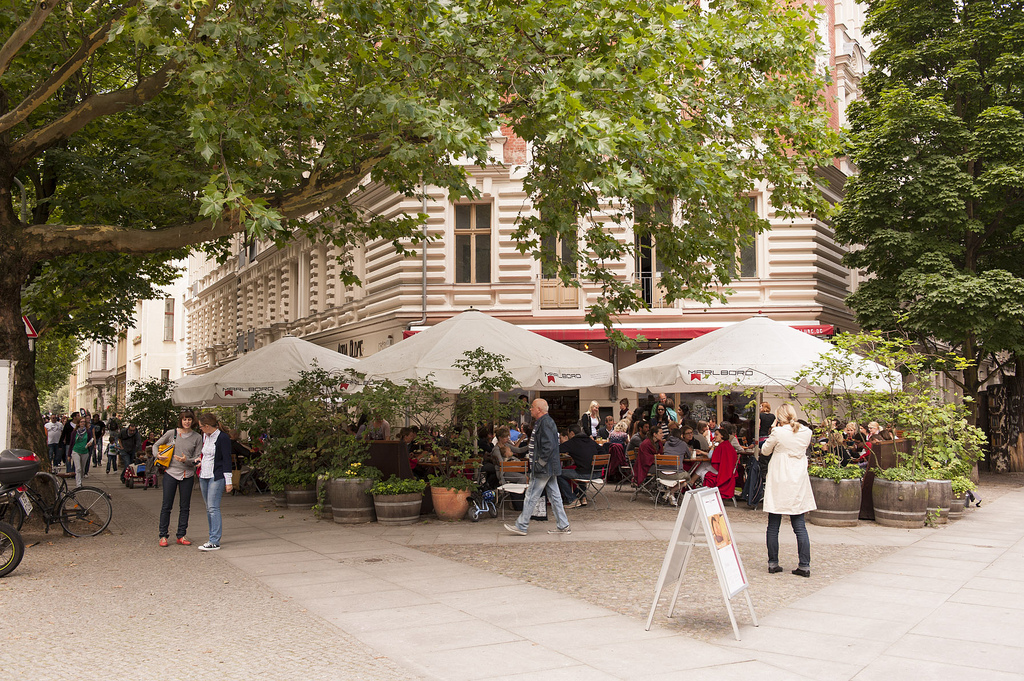From Penza to Berlin: The History of Moving the Test Automator
Five years ago, Ilya P. moved to Berlin with his wife and eight-month-old daughter under the Blue Card program. To date, he has already changed three positions. Ilya told me about the details of job search and relocation.
I am from Penza, I defended a bachelor's degree, and then a master's degree in Penza State University in the field of “Computing Engineering”. In 2013, he entered graduate school, but did not finish - he quit. By and large, I studied everything from electrical circuits and microprocessors to system and application programming.

The idea arose out of the political activity of 2011-2012. In 2013, we already began to take direct action - to collect information, learn the language, pack. Politics became a kind of trigger: we realized that things would only get worse, and if we leave, then in the very near future. My wife and I were not satisfied with the dead medicine, the poor quality of education and the lack of social elevators.
What were your prospects in Russia? Where did you work at the time of the decision to move?
At that time I worked in the wonderful Penza company flysoft. We developed the iFunny - fun service, focused on the American market. I provided the quality of iOS and Android applications, as well as the Web version of the service. Simply put, was engaged in testing - manual and automated.
The prospects within the flysoft team were quite good: the team is very successful and is developing an interesting product. In Penza at that time, successful IT companies could be counted on the fingers of one hand. But for most I would have to leave for Moscow or St. Petersburg, as many of my friends did.

What did you expect from Germany? Why chose this country?
Germany was the most obvious choice: here we had relatives who could help the first time. I had no definite ideas or expectations. The only thing I was sure of was that everything would be different.
What steps did you and your family take next?
First of all, we began to collect information on all aspects of a visa and Blue Card, relocation and life in Germany. At that time there was not much information on this topic, I mostly read blogs, forums (for example, surfin-birds.ru , foren.germany.ru and www.tupa-germania.ru ) and the official website of the German Embassy in Russia.
I already went to German courses, so I tried to look for information in the German-speaking segment of the Internet, but the language was not enough, and it did not bring results.
What was your first impression of Berlin?
Clean, lots of greenery on the streets, very punctual public transport, even in the shops they greet and wish a good day, they smile a lot, there are ramps almost everywhere.
How did you look for work? What positions did you apply to?
Actively looked at jobs on StepStone, made a profile in Xing. With the help of Google-translator, I made a summary “in the German way” on information from the same blogs and forums, asked my relatives to view it. As a result, it was almost completely rewritten.
It depended on whether I would find a job, whether we could stay or have to return to Russia, so I responded to every job that at least fit my profile. Even if it was something not 100% suitable. I responded to 80-100 vacancies, half of them did not respond at all or did not respond immediately. Some of the answers came immediately with a refusal, some wrote what they thought and answered later. One answer came a couple of months later, at that time I went to work.
In the end, I was invited as much as 2 interviews. I read about this distribution before the move, so I was ready and did not hang my nose. I was taken to the position of test automation in Java and Java Script in a small company with 32 employees, 10 of them were engaged in development and 4 testing. Less than a year later I already worked as a full-fledged developer with a higher pay and could learn a lot from my colleagues. A year later, I went to a new company for an even higher salary.

How did the interviews go? Are you satisfied with yourself?
Interviews were very nervous for me: again, it depended on them whether my family would remain in Germany. Before one of the interviews, I was asked to do a test homework and then present it. Everything took place in a very friendly atmosphere; there was no feeling that you were passing some kind of test or sitting at the interrogation, as it sometimes happened in Russia.
What surprised me the most was the fact that I, in principle, quite tolerably communicated in German, although this was my first experience of more or less difficult communication in the natural environment, not including shops and courses.
What was the most difficult for you to move?
The most difficult was to streamline all the information from different, often contradictory, sources.
It was difficult to find an apartment that we would like to rent and which we would want to rent. For about two months we went to different agencies, sometimes 4-5 visits a week. In some of us we were immediately deployed, because One of their requirements is a permanent residence permit in Germany. In others, they said that they did not give it to people on probation; and sometimes apartments were not suitable for us.
Are you happy with your life now? What plans do you have for the future?
Of course, there is always something to strive for, but I am quite pleased with how everything turned out. We left at a very good time, I quickly found a job. I don’t think that the apartment could turn out faster - this is Berlin, there is not enough housing here. I would like to develop in the direction of IT-architecture, travel more and spend more time with my family.

Now after 5 years in Berlin, what would you advise people thinking about leaving? Where do they start? What mistakes should be avoided? How to choose a country?
I am from Penza, I defended a bachelor's degree, and then a master's degree in Penza State University in the field of “Computing Engineering”. In 2013, he entered graduate school, but did not finish - he quit. By and large, I studied everything from electrical circuits and microprocessors to system and application programming.

The idea arose out of the political activity of 2011-2012. In 2013, we already began to take direct action - to collect information, learn the language, pack. Politics became a kind of trigger: we realized that things would only get worse, and if we leave, then in the very near future. My wife and I were not satisfied with the dead medicine, the poor quality of education and the lack of social elevators.
What were your prospects in Russia? Where did you work at the time of the decision to move?
At that time I worked in the wonderful Penza company flysoft. We developed the iFunny - fun service, focused on the American market. I provided the quality of iOS and Android applications, as well as the Web version of the service. Simply put, was engaged in testing - manual and automated.
The prospects within the flysoft team were quite good: the team is very successful and is developing an interesting product. In Penza at that time, successful IT companies could be counted on the fingers of one hand. But for most I would have to leave for Moscow or St. Petersburg, as many of my friends did.

What did you expect from Germany? Why chose this country?
Germany was the most obvious choice: here we had relatives who could help the first time. I had no definite ideas or expectations. The only thing I was sure of was that everything would be different.
What steps did you and your family take next?
First of all, we began to collect information on all aspects of a visa and Blue Card, relocation and life in Germany. At that time there was not much information on this topic, I mostly read blogs, forums (for example, surfin-birds.ru , foren.germany.ru and www.tupa-germania.ru ) and the official website of the German Embassy in Russia.
I already went to German courses, so I tried to look for information in the German-speaking segment of the Internet, but the language was not enough, and it did not bring results.
What was your first impression of Berlin?
Clean, lots of greenery on the streets, very punctual public transport, even in the shops they greet and wish a good day, they smile a lot, there are ramps almost everywhere.
How did you look for work? What positions did you apply to?
Actively looked at jobs on StepStone, made a profile in Xing. With the help of Google-translator, I made a summary “in the German way” on information from the same blogs and forums, asked my relatives to view it. As a result, it was almost completely rewritten.
It depended on whether I would find a job, whether we could stay or have to return to Russia, so I responded to every job that at least fit my profile. Even if it was something not 100% suitable. I responded to 80-100 vacancies, half of them did not respond at all or did not respond immediately. Some of the answers came immediately with a refusal, some wrote what they thought and answered later. One answer came a couple of months later, at that time I went to work.
In the end, I was invited as much as 2 interviews. I read about this distribution before the move, so I was ready and did not hang my nose. I was taken to the position of test automation in Java and Java Script in a small company with 32 employees, 10 of them were engaged in development and 4 testing. Less than a year later I already worked as a full-fledged developer with a higher pay and could learn a lot from my colleagues. A year later, I went to a new company for an even higher salary.

How did the interviews go? Are you satisfied with yourself?
Interviews were very nervous for me: again, it depended on them whether my family would remain in Germany. Before one of the interviews, I was asked to do a test homework and then present it. Everything took place in a very friendly atmosphere; there was no feeling that you were passing some kind of test or sitting at the interrogation, as it sometimes happened in Russia.
What surprised me the most was the fact that I, in principle, quite tolerably communicated in German, although this was my first experience of more or less difficult communication in the natural environment, not including shops and courses.
What was the most difficult for you to move?
The most difficult was to streamline all the information from different, often contradictory, sources.
It was difficult to find an apartment that we would like to rent and which we would want to rent. For about two months we went to different agencies, sometimes 4-5 visits a week. In some of us we were immediately deployed, because One of their requirements is a permanent residence permit in Germany. In others, they said that they did not give it to people on probation; and sometimes apartments were not suitable for us.
Are you happy with your life now? What plans do you have for the future?
Of course, there is always something to strive for, but I am quite pleased with how everything turned out. We left at a very good time, I quickly found a job. I don’t think that the apartment could turn out faster - this is Berlin, there is not enough housing here. I would like to develop in the direction of IT-architecture, travel more and spend more time with my family.

Now after 5 years in Berlin, what would you advise people thinking about leaving? Where do they start? What mistakes should be avoided? How to choose a country?
- Start by understanding the purpose of the move - for what or from what. Further depends on the goals and personal preferences: what is good for some, will not be optimal for others. It is clear that it is worth paying attention to the general economic and social situation in the countries that you are considering for emigration.
- If you are going to relocate, then learn the language of the country. Of course, in cities such as Berlin, Munich, and Hamburg with English you can live without any difficulties, but if you plan to stay here for a long time, then German will be very useful. Young people and expatriates speak excellent English, and older people, employees of government agencies or shops are not very good. Or much less willingly.
- Be sure to gather as much information as possible about even the smallest aspects of moving and living in the country of destination.
- Do not take a lot of things with you, it is better to go light. Even with an 8-month-old baby, two standard luggage was enough.
- It will not be superfluous to transfer your diplomas, birth and marriage certificates to German and put apostils before the move - in Russia it is cheaper than here.
